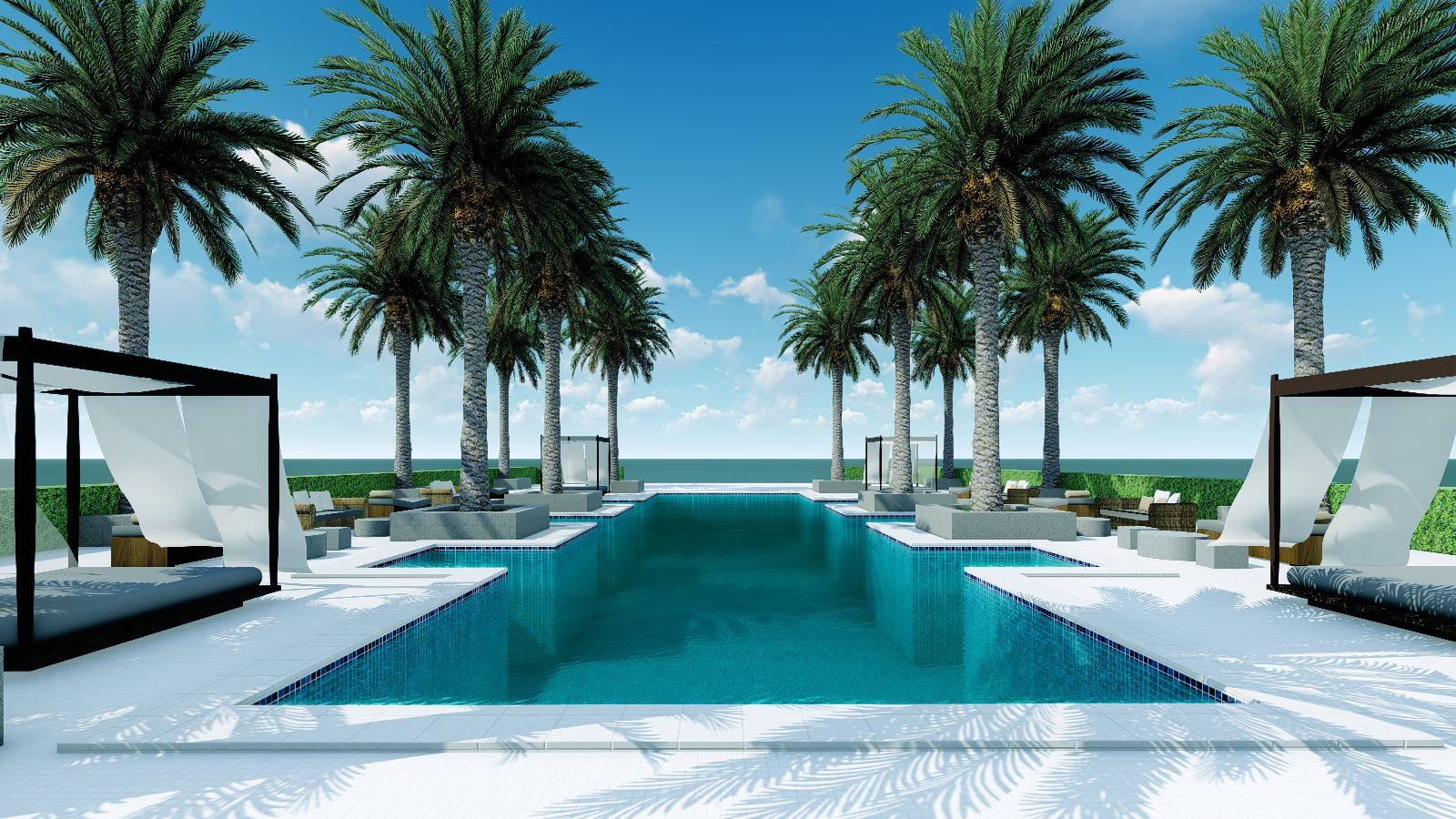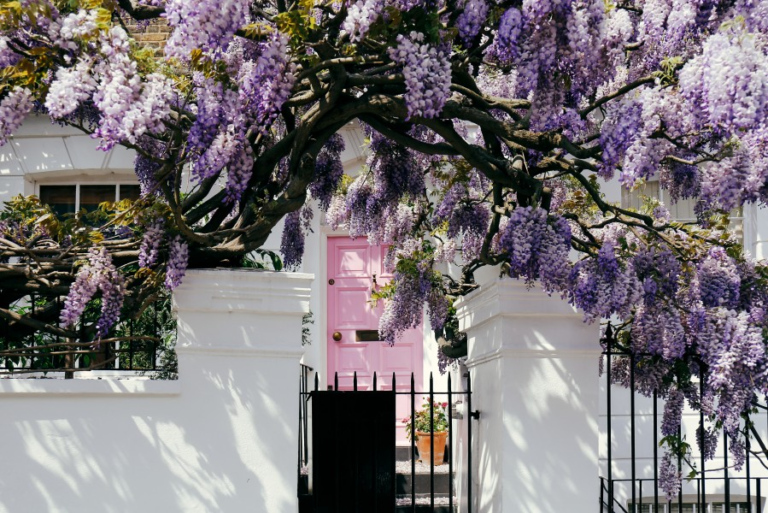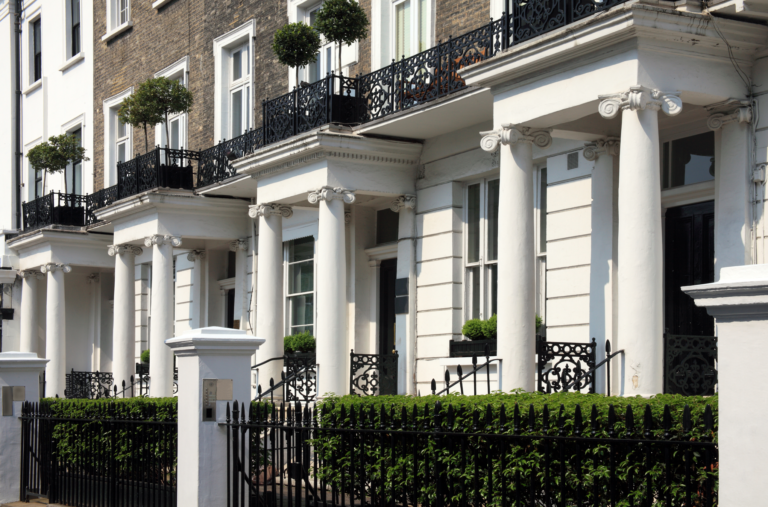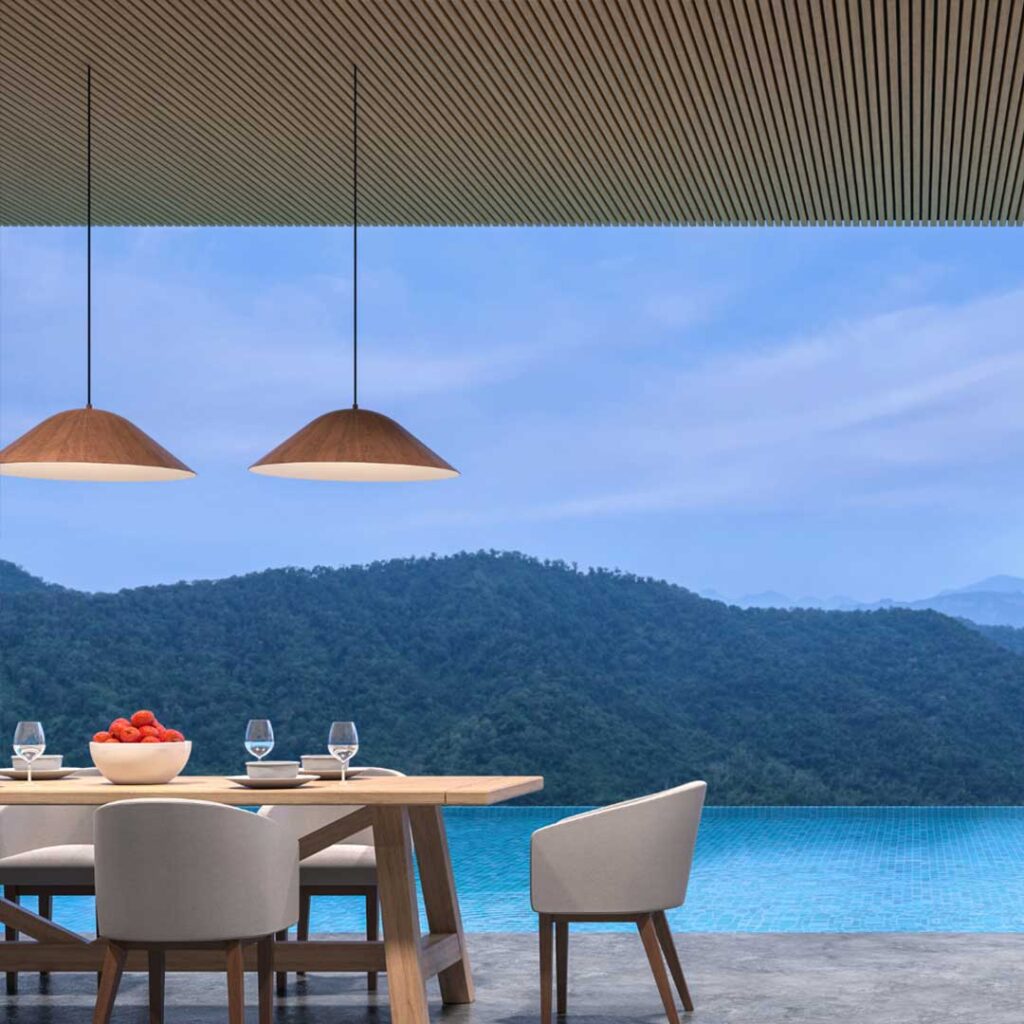A favourable exchange rate and the weakening of the Pound are seeing London become an increasingly appealing option for Middle Eastern investors.
Buyers from the Middle East have long invested in luxury homes in elite British postcodes, led by prime Central London locations like Kensington and Knightsbridge. But the low British Pound compared to the United States Dollar only heightens Gulf investors’ interest in British property. That’s seen a surge in interest from Middle Eastern buyers, with Knight Frank data revealing the number of prospective buyers registering their interest in London properties in May was the third-highest monthly figure in a decade.
Why is London appealing to Middle Eastern investors?
Luxury properties are particularly appealing as they aren’t following the same trend as the general property market. House prices across the UK generally surged through the pandemic. They also increased by 15.5% in the 12 months leading to July 2022, according to the Office of National Statistics, as the market was driven by domestic buyers.
But high-end properties in prime Central London locations, such as Chelsea, Mayfair, Notting Hill, and Westminster, dropped by 16% from the peak period of August 2015, according to Bank of England figures. While Capital Economics and HSBC analysts have projected house prices could fall by 12-14% over the next two years as the pound continues to slide. Furthermore, the value of the British Sterling decreased by up to 20% against other global currencies due to Brexit. This offers foreign nationals and overseas buyers a significant opportunity to buy properties at lower costs and receive great returns.
Factors that make London particularly appealing to Middle Eastern investors include:
Favourable financial opportunity: Luxury properties are increasingly appealing given the dollar’s strength against the pound, which unlocks greater value for Arab investors. Many have the United Arab Emirates Doham pegged or locked to the dollar as it gives them a more stable exchange rate and ensures their savings are in the currency. For example, Kuwait has the world’s highest currency, making the poorly performing pound particularly appealing.
Appealing high-end locations: Kensington, in particular, has been a popular location with Middle Eastern buyers for many years. For example, the iconic department store Harrods is currently owned by Qatar Holdings, the wealth fund of the State of Qatar, and the deal was finalised by Qatari Prime Minister Hamad bin Jassim bin Jaber Al Thani. But it was previously owned by Mohamed Al-Fayed, who also owned Fulham Football Club, which is very close to Chelsea.
Arab investors and business people visiting London traditionally stayed in high-end hotels like The Dorchester or The Ritz. But as the property market has evolved, it’s become more financially sustainable for them to purchase their own homes in these high-end locations.
British school system: Another critical consideration is the British education system, as ultra-high-net-worth individuals look to give their children the best possible start in life. Many Bahraini, Kuwaiti and Saudi individuals send their children to study in the UK at institutions like Oxford University and Cambridge University and want homes for them to live in.
Islamic or Sharia financing: The availability of Islamic financing or Sharia-friendly mortgages is also crucial to many Arab investors. Under Sharia law, interest cannot be charged or paid on loans or mortgages. So a Sharia-compliant mortgage is designed to prevent buyers from paying interest on a property. Rather than paying interest rates, Islamic banks will deal with “expected profit rates.” And many UK-based and international banks and lenders are Sharia-compliant, not just specifically Islamic banks, making the market even more appealing to Middle Eastern investors.
How to purchase a luxury home in London?
The UK property market is one of the most complicated, highly liquid and competitive. But it’s also one of the world’s most sought-after locations for high-end properties and luxury properties continue to increase.
As a result, many mortgage providers offer lending opportunities in the UK, from international banks to building societies and more specialised niche lenders. Each institution has its own lending criteria, interest rates and conditions and specialises in various mortgage options, from regulated mortgages to bridging finance and commercial mortgages.
It’s a great time to invest in London property, but it’s vital to first speak to an expert with specialist experience in securing financial packages for luxury London properties.
Can Middle Eastern individuals purchase homes in London?
Hectocorn works with specialised lenders that accept multiple currencies, including the Bahraini, and Kuwaiti Dinars, the Emirati Doham, the Lebanese Pound and Lira, and the Saudi Riyal. We’ve also worked with ultra-high-net-worth individuals from Bahrain, Iraq, Kuwait, Lebanon, Saudi Arabia, and more countries across the Middle East, helping them to finance their dream homes across London and the UK.
Crucially, Hectocorn provides bespoke finance solutions and access to a curated network of lenders. Our expertise helps ultra-high-net-worth individuals understand the opportunities in the evolving property market, maximise their spending needs, and broker competitive rates. This is crucial to getting the best financial package when purchasing a property in high-end London locations.
Our established relationships with UK mortgage providers help buyers get the best mortgage deals and structure financial packages to best suit their specific requirements. We also take a proactive approach to maintaining and growing investors’ property portfolios, while keeping an eye on the ever-changing property market regulations.
Hectocorn also specialises in Islamic finance and Sharia-compliant mortgages, which means we can negotiate the best ethical deals for Muslim and non-Muslim clients. We put your needs at the centre of our process, considering your faith or culture-related circumstances and gaining the best rates and terms for your financial situation.
Are you looking to purchase a property in London to broaden your portfolio? Get in touch to discover how Hectocorn can help you invest wisely.







